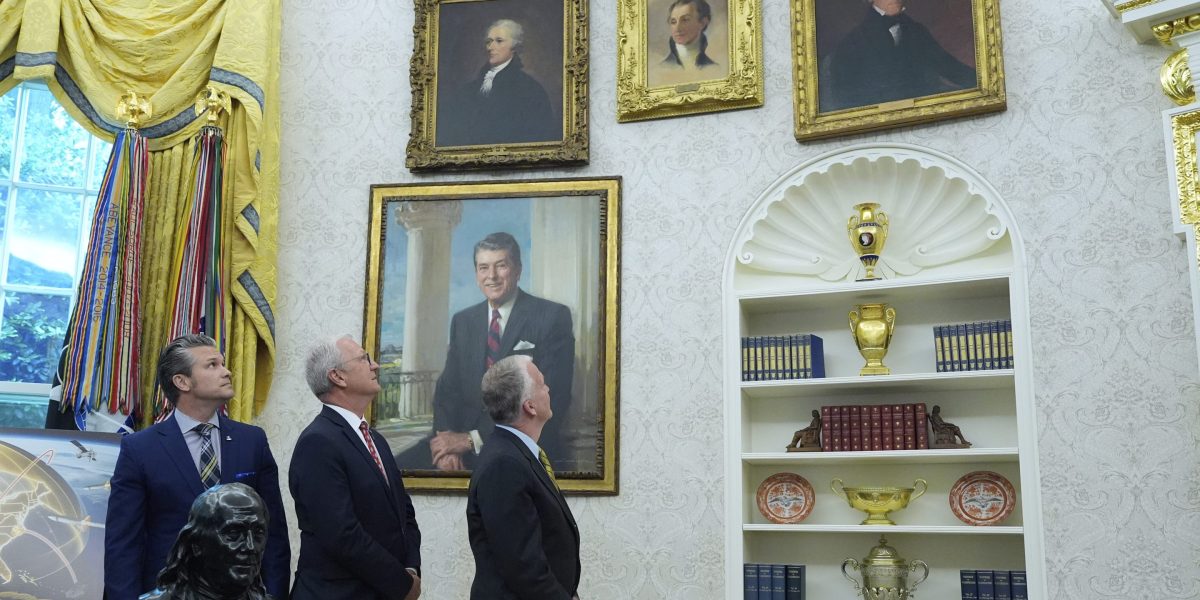Trump’s tax bill triumph could be a poisoned chalice for Republicans
Donald Trump has moved a big step closer to fulfilling a key objective of his second term with the passage of his sweeping, “big beautiful” tax bill by a slim majority in the House of Representatives.
However, while Trump and his Republican allies celebrated after the bill passed by a single vote early on Thursday morning, the legislation could become a poisoned chalice for the president and his party.
The bill, which extends Trump’s 2017 tax cuts before they run out at the end of the year and slashes spending on the social safety net, risks being seen as a giveaway to the rich that will damage ordinary households and alienate voters.
The broader economic and financial pitfalls could also be significant: in recent days longer-dated US Treasuries have been sold off again as bond investors bet that America’s fiscal position will deteriorate because of the deficit-busting nature of the legislation. Analysts at Wharton business school say it will raise the US’s debt-to-GDP ratio from 98 per cent to 125 per cent over the next decade.
“Everybody I’ve talked to in the financial markets, they’re staring at the bill, and they thought it was going to be much more in terms of fiscal restraint, and they’re not necessarily seeing it,” Christopher Waller, a Federal Reserve governor who was appointed to the board during Trump’s first term, told Fox Business on Thursday.
Scott Bessent, the US Treasury secretary, wrote on X that the bill would stop “historic tax hikes on hardworking Americans” and save “millions of American jobs”. His deputy, Michael Faulkender, added that the legislation was part of Trump’s “pro-growth agenda” and aims to “strengthen our fiscal foundation”.
However, the independent bipartisan Committee for a Responsible Federal Budget has warned that it will cost more than $3tn over the next decade, since the tax cuts will only partially be offset by spending cuts.
“This bill is a debt bomb ticking,” Kentucky lawmaker Thomas Massie — one of two House Republicans to vote against the legislation — said on the floor of the lower chamber. “Congress can do funny math, fantasy math, if it wants, but bond investors don’t and this week they sent us a message,” he added.
Critics say Trump officials are counting on a misplaced belief that the tax cuts will stimulate economic activity so much that they will blunt the hit to US deficits, as previous Republican administrations have often claimed with regard to the tax cuts enacted by George W Bush and Trump during his first term.
“Since at least the 1920s, policymakers have been making the argument that tax cuts will partially pay for themselves and will not be as expensive as they first seem,” said Joseph Thorndike, a historian at Tax Analysts. “The argument that cuts pay for themselves is not supportable, either in the economic literature or the historical literature.”
Richard Clarida, a former Fed governor now at Pimco, the fund manager, said the tariffs Trump introduced this year could help cover some of the gap. “Even if we just get 10 per cent on everything, that will still be around $200-300bn a year.”
But with many trade negotiations still pending uncertainty is huge over the path of US trade policy, and Thorndike warned that relying on levies for revenue was a very outdated way of managing fiscal policy.
“If this were 1896, then relying heavily on tariffs might be plausible. Although even then it was considered undesirable by a lot of people,” he said. “It’s worth recalling that the reason why we have an income tax is because people didn’t like tariffs.”
Democrats in the House unanimously opposed the legislation — with some attacking it for being fiscally reckless, but most slamming it for boosting the finances of wealthier households at the expense of middle and low-income families.
“They took a chainsaw to the basic needs of their hardworking constituents to help the rich get richer. Their betrayal will not be forgotten,” Katherine Clark, the Democratic whip in the House, said on Thursday morning.
The party’s criticism was bolstered by an analysis from the non-partisan Congressional Budget Office on Tuesday evening, which said the bill was likely to benefit high-earning Americans, while eating into the disposable income of the poorest.
“The changes would not be evenly distributed among households,” said Phillip Swagel, director of the CBO. “The agency estimates that, in general, resources would decrease for households in the lowest decile of the income distribution, whereas resources would increase for households in the highest decile.”
CBO projections show that disposable income for the poorest households would be 2 per cent lower in 2027, mainly as a result of cuts to benefits such as Medicaid, the healthcare plan for the poor, and Snap, the US’s food stamps programme. Disposable income for the highest paid households, meanwhile, would climb by 4 per cent by 2027.
Trump in recent weeks has called for more populist measures such as a higher income tax rate for the wealthiest households, eliminating preferential tax treatment for hedge fund managers and private equity groups known as ‘carried interest’, and warned lawmakers not to slash Medicaid excessively.
However, the final version of the bill as it passed did not include many of these tougher tax provisions on the wealthy but did include deeper cuts to Medicaid than previously expected, to appease hardline conservatives
Still, the legislation included some of the president’s top campaign promises from the 2024 election, including scrapping taxes on tips and on government pension payments for seniors — and he was thrilled.
“Now, it’s time for our friends in the United States Senate to get to work, and send this Bill to my desk AS SOON AS POSSIBLE! There is no time to waste,” he wrote on Truth Social.
Source link









